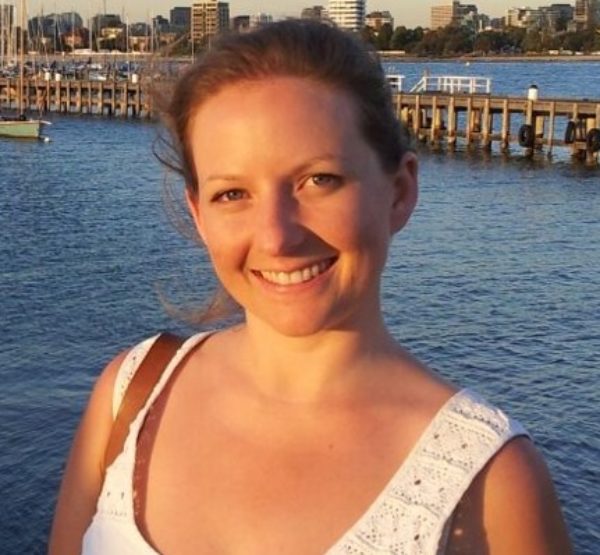The Opposite of Retreating
I faked my way through all of them: the Christian retreats with my confirmation class in eighth grade, the retreat to help freshmen adjust to their first year of college, a spiritual retreat to find my true calling in life, a writer’s retreat.
I knew that these weekend escapes — away from the distractions of schoolwork and friends — were supposed to give me some perspective, provide a quiet place where I could uncover a deeper understanding of myself. This was where I was supposed to do battle with my beliefs — about God, about life, about love — and come out stronger on the other side. But retreats have never worked that way for me.
Instead, I have witnessed others make life-changing realizations on those weekends away, while I just pretended to get the same satisfaction out of them. Maybe it’s because I’ve never been able to fully turn off the self-conscious part of the brain that is always present, observing my attempts at meditation and my searches for meaning. As they say, a watched pot never boils. Yet again, maybe these things have a way of happening when you least expect them.
Sometimes, I wondered, whether the same was true of retreating. Was I looking for enlightenment in all the wrong places? What if those moments of understanding I so desperately wanted to experience were not to be found in some remote cabin in the woods but out there, in the midst of life?
As I rode a bus through the hilly farmland outside Pune, India, towards yet another retreat, the Ananda Yoga Retreat Center, it was with no small amount of trepidation. Yes, I was going to the ashram to report on spirituality as I encountered it in all its forms in India. But I also sincerely wanted to have my own spiritual experience while I was there. And based on my previous retreat experiences, I didn’t know if I could.
Back at home, I was on the brink of finishing grad school, an event that, unsurprisingly, was prompting me to reevaluate my life and what I really want from it. I was looking forward to leaving the material world behind for a few days and reconnecting with my inner consciousness. This is part of the ethos of Ananda.
Ananda is a spiritual movement founded by the American-born Swami Kriyananda, born James Donald Walters, in California in 1968. Early initiates formed a small, self-sustaining community outside Sacramento with the aim of living a simpler life. Since then, Ananda communities have popped up around the globe, from Italy to Argentina, India to Israel.
Their spiritual practice draws strongly on the teachings of Paramahansa Yogananda, a 20th-century guru who started Self-Realization Fellowship. Like SRF, Ananda mixes Hindu beliefs, such as reincarnation, with the Christian tradition. Their lineage of gurus includes Jesus Christ.
Even though I was new to the Ananda “path,” as devotees call it, I felt surrounded by the familiar trappings of retreat life. There were shared meals, where talk of spiritual journeys dominated the conversation. Some people told deeply personal stories about the moment when they realized their life lacked true meaning and purpose, or the time when they felt the undeniable presence of a higher power.
In our conversations, we often agreed that the stable 9 to 5 job, the house with a white picket fence, the accumulation of iPhones and big screen TVs, left us feeling unfulfilled. There must be something more to life, we said. And we meditated, or wrote in our journals, or spent the day in silence trying to discern an alternate path to achieving happiness and inner peace in this world.
For the Anandans I met in Pune, that answer was already clear: live at an ashram in the Indian countryside; eat vegetarian dal and rice for breakfast, lunch, and dinner; do yoga every day; take a vow of silence, or better yet, celibacy. But such a retreat from the world seemed impractical to me. I wanted to examine my soul so I might be a happier, more present human being in my everyday life. In my imagination, my future, enlightened self still passionately discussed books with friends, organized big family dinners and, yes, went out to a bar every now and then. The two aren’t mutually exclusive, right?
I asked Victor that question on my first day at the ashram. An American from Montana, Victor had been living with the Ananda community outside of Pune for a few months, ever since he graduated from Stanford University. He had the sturdy, familiar look of my little brother. And I thought if anyone were grappling with the dissonance of the retreat life and the outside world, it would be him.
Victor told me he first discovered Ananda back in the United States, when the stress of attending a prestigious university prompted him to seek out an alternate environment. He was tired of professors who were out of touch with the world beyond academia and of students who only cared about making money. He wanted to rethink his goals in life. Those visits to an Ananda center, where yoga and meditation classes were held, eventually brought him here, to the live-in community where he was currently residing in the monastery. Talk about dissonance.
But when I asked Victor about reconciling these two worlds, he didn’t seem at all fazed. He wasn’t going to actually become a monk, he told me, and he didn’t plan to live in the Ananda community long term. He was thinking about heading back to the U.S. soon, where he thought he might work as a consultant.
It was in moments like these that I realized how deeply skeptical I had become about the value of retreating. I get that taking a step back from life can reveal some previously unknown truth, in a “can’t see the forest for the trees” sort of way. But what next? Does it come down to be being a consultant or a monk? Is there no in-between?
I know Victor thinks so. That’s why he was at the rural Ananda community, to reflect on how he might merge these two paths. But his was an inward-looking contemplation, involving long periods of meditation and silence up in the monastery. And I could only wonder how his isolation evolved into a clear decision.
Don’t get me wrong, I believe in the importance of asking the big questions: does God, or any higher power, exist? What is my purpose in life, and am I fulfilling it? Socrates said, “The unexamined life is not worth living,” and I wholeheartedly agree with him.
But when it comes time to look inwards, something inside of me turns mutinous. My meditations quickly devolve into a standoff between two parts of my brain. One pleads: just sit here quietly then, if you won’t cooperate and meditate. The other refuses to stop fixating on the mosquito bite on my foot that itches, or the pain in my lower back that must be massaged, or the tickling sensation in my nose that any minute will become a loud, disruptive sneeze.
The metaphysical musings in my journal turn to doodles after a mere paragraph or two. And it’s surprisingly easy for me to nap or daydream my way through a daylong vow of silence. Left to my own devices, I am a very poor seeker of spiritual enlightenment.
When I was younger, I felt bad about this stubborn side of my nature. One time, I attended a spiritual retreat about identifying your true calling in life. I spent one whole day in silence, armed with pen and notepad, but I was never able to transcend the state of knowing that I was supposed to be thinking deep thoughts. Later that day, everyone on the retreat stood in a circle and talked about their reflections. As the others recounted their emotional breakdowns and mental breakthroughs, I wished I had been able to just let go in the same way.
At the Ananda center, though, things were different. This time, I no longer envied my fellow spiritual seekers and their solo pursuit of happiness. And when I looked around the temple, at all the believers sitting in the lotus position with their eyes closed, probing the depths of their souls for some sense of enlightenment, I realized why.
I am, to my core, a people person. I feel most inspired and closest to my truth when I’m having a meaningful conversation with my sister or best friend. Talking with another human being about the purpose of life, and what brings me fulfillment, reveals more to me than any retreat ever has.
I said as much to one of the other Ananda visitors at lunch one day. Like me, Patryck was just passing through the Pune ashram. But unlike me, Patryck — whose spiritual moniker is Mango — had just come from another ashram before he arrived at Ananda, and he was heading to a third ashram directly after. Mango was as much convinced of the benefits of retreating as I was skeptical.
Originally from Denmark, with numerous tattoos and plugs in his earlobes, Mango didn’t look like the kind of guy who would normally dispense meditation advice, but he listened attentively as I professed to him my doubts about meditation and my belief in the sacredness of close human relationships. He had once been where I was, he told me — a little bit in awe of the strong emotions coursing through my body, mind, and heart, and unwilling to believe that any internal reflection could be better than “real” life. But only through meditation, Mango said, had he been able to experience life on a purer, more powerful level.
I contemplated Mango’s argument during my last morning meditation of the retreat. And in the illogical leaps and bounds my rebellious brain routinely made during these sessions, I thought how like wine tasting this spiritual quest was.
Understanding the complexity of a fine wine involves swirling and sniffing and sipping and spitting, and has very little to do with the pleasure of drinking it. Similarly, it seemed, searching for the meaning of life too often requires retreating from it.
I remembered visiting the vineyards of the Santa Ynez Mountains, just east of Santa Barbara, with my mom and sisters a few years before. Gazing out on the green hillsides covered in grapevines, the sun sending the scent of lavender into the air, sipping a glass of wine, I knew I understood complete and utter satisfaction. I did not taste the berry in the wine, or the notes of vanilla. And I did not care.
As the meditation came to a close, I realized I got my spiritual sustenance not from the solitude of a retreat but from the company of those I love.


Share your reflection